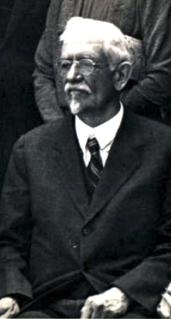A Quote by Stephen Hawking
M-theory is the unified theory Einstein was hoping to find.
Related Quotes
I had two passions when I was a child. First was to learn about Einstein's theory and help to complete his dream of a unified theory of everything. That's my day job. I work in something called string theory. I'm one of the founders of the subject. We hope to complete Einstein's dream of a theory of everything.
The supposed astronomical proofs of the theory [of relativity], as cited and claimed by Einstein, do not exist. He is a confusionist. The Einstein theory is a fallacy. The theory that ether does not exist, and that gravity is not a force but a property of space can only be described as a crazy vagary, a disgrace to our age.
When you look at the calculation, it's amazing that every time you try to prove or disprove time travel, you've pushed Einstein's theory to the very limits where quantum effects must dominate. That's telling us that you really need a theory of everything to resolve this question. And the only candidate is string theory.
I think there's this essential human desire to have a unified field theory. Everyone is like, 'I want to unlock the single secret to 'Lost.' There isn't any one secret. There is not a unified field theory for 'Lost,' nor do we think there should be, because philosophically, we don't buy into that as a conceit.
It is a remarkable fact that the second law of thermodynamics has played in the history of science a fundamental role far beyond its original scope. Suffice it to mention Boltzmann's work on kinetic theory, Planck's discovery of quantum theory or Einstein's theory of spontaneous emission, which were all based on the second law of thermodynamics.
If the theory accurately predicts what they [scientists] see, it confirms that it's a good theory. If they see something that the theory didn't lead them to believe, that's what Thomas Kuhn calls an anomaly. The anomaly requires a revised theory - and you just keep going through the cycle, making a better theory.
































